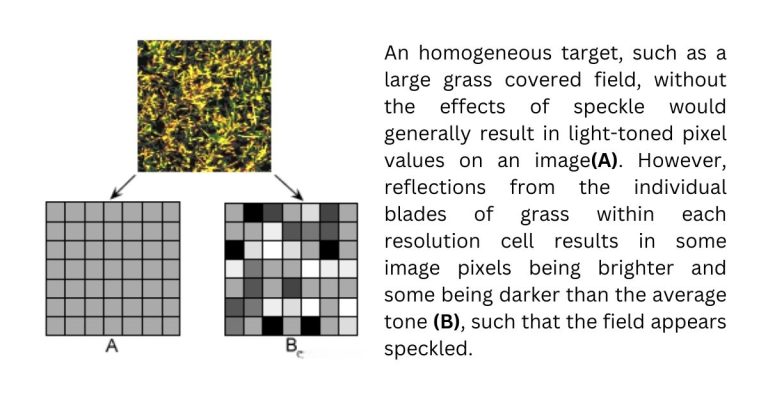Estimated reading time: 5 minutes
Table of contents
In the field of human geography: ‘Environmental Determinism’ and ‘Possibilism.’ These are two distinct philosophies that revolve around the role of humankind, whether we should be seen as passive entities or active agents, reacting to our environment and shaping it.
In simpler terms, Environmental Determinism suggests that in the struggle for survival (where the environment dictates human actions), people don’t have the freedom to make their own choices, and their accomplishments are seen as outcomes influenced solely by natural conditions.
On the other hand, Possibilism argues that the ‘pattern of human activity on Earth’s surface results from human creativity and adaptability, operating within the boundaries of natural forces.’ While acknowledging that the environment imposes certain limits on human ambitions, Possibilism emphasizes the vast scope of human actions rather than fixating on these limitations (Tatham, 1953; 152-53).
In essence, these two philosophies prompt us to contemplate our relationship with the environment and whether we are passive observers in the face of nature’s forces or active architects of change in our surroundings.
In the following discussion, we will delve into the concept of environmental determinism.
Rise of Environmental Determinism with Examples
The concept of environmental determinism stands as one of the most ancient philosophies, dating back to classical antiquity. In those bygone eras, people and their lands were seen as inseparable entities. When peculiar customs or unique physical traits were encountered, explanations were sought in the elements of nature—climate, topography, or soil (Tatham, 1952).
Views of Herodotus
Herodotus, a historian writing during the fifth century BC, held the belief that ‘all history should be viewed through a geographical lens, and all geography should be considered within the context of history’ (James and Martin, 1972, 21). This notion implicitly acknowledged the principles of determinism. Herodotus went on to note that geography served as the physical backdrop, the stage upon which historical events unfolded.
Views of Hippocrates
Around 420 BC, Hippocrates made distinctions between the easy-going Asiatic residing in favorable regions and the resourceful Europeans, who, due to their less hospitable environment, had to rely on greater activity to improve their circumstances. He also contrasted the tall, courageous inhabitants of windy mountainous regions with the lean, blond individuals of arid lowlands.
Views of Plato
Plato (428-348 BC) proposed that the observable elements on Earth were mere imperfect replicas of abstract ideas, or perfect archetypes from which these observable elements had either degenerated or were in the process of degenerating. However, unlike his predecessors, Plato was not an extreme determinist; he missed an opportunity to reshape the course of speculations about the relationship between humanity and the land by failing to identify humanity as a transformative force.
In contrast, Eudoxus, a contemporary of Plato, developed a theory of climate based on the inclination away from the sun on a spherical surface, underscoring the significance of climate in human life.
Views of Aristotle
Aristotle (384-322 BC), a renowned thinker of his time, is credited with introducing groundbreaking concepts in environmentalism during his era. He held a distinct perspective from Plato, who was somewhat reluctant to fully embrace extreme determinism. Aristotle endeavored to conceptualize how habitability varied with differences in latitude.
He argued that regions close to the equator, known as the torrid zone, were uninhabitable due to extreme heat, while areas far from the equator, the frigid zone, remained consistently frozen and also uninhabitable. According to Aristotle, the habitable part of the Earth was the temperate zone in between. However, he noted that not all of this temperate zone was inhabited, largely due to the presence of vast oceans.
Highlighting the role of climate in shaping human abilities and sustainability, Aristotle observed in his work ‘Politics’ that “the inhabitants of the colder countries of Europe are brave, intellectually competent, and therefore remain free for longer periods but lack political organization, making them unable to govern others. In contrast, the people of Asia are thoughtful and skilled but lack spirit, leading to their continuous subjugation and enslavement” (quoted in Tatham, 1953, 128). Aristotle believed that the Greeks, residing in the intermediate region, embodied the best qualities of both.
Views of Eratosthenes
Eratosthenes (c. 234 BC) redefined Aristotle’s notions of habitable zones, emphasizing climatic determinism when describing the ‘Ekumene,’ the inhabited Earth. Posidonius, who lived shortly before the time of Christ, challenged Aristotle’s claim that the equatorial part of the torrid zone was uninhabitable due to heat. He argued that the highest temperatures and driest deserts were located in the temperate zone near the tropics, while the equatorial region had less extreme temperatures.
However, it remains unclear whether Posidonius fully refuted the contemporary belief in climate’s influence on human activities because his perspective on the habitability of the equatorial region was often overlooked.
Views of Strabo
Strabo (64 BC-20 AD) continued Aristotle’s viewpoint on habitability in his book ‘Geography.’ Like Eratosthenes, he redefined the concept of the habitable Earth, ‘Ekumene,’ while maintaining the idea of environmental influence on human activities. Strabo sought to explain how Italy’s shape, relief, climate, and spatial relationships impacted the rise and power of Rome.
Views of Ptolemy
Ptolemy (Claudius Ptolemaus), who lived in the second century after Christ, reiterated Aristotle’s idea of equating habitability with latitude and the influence of celestial bodies’ positions on human affairs. Although Ptolemy marked the end of an era of geographic exploration and intellectual expansion initiated by the Greeks, Aristotle’s concept of equating habitability with latitude endured and was carried forward by subsequent generations. However, the deterministic ideas of classical antiquity lacked empirical validation.
References
Fundamental of Geographical Thought, Adhikari Sudeepta
You May Also Like





























